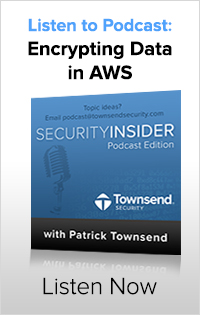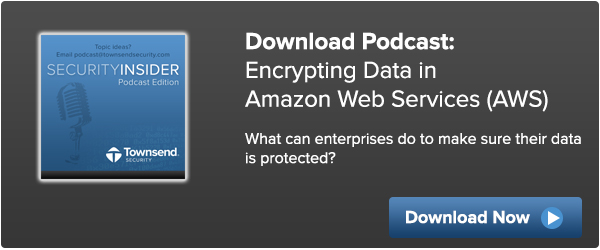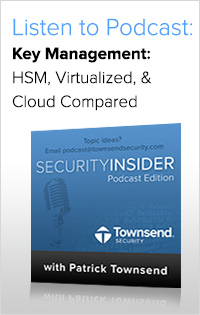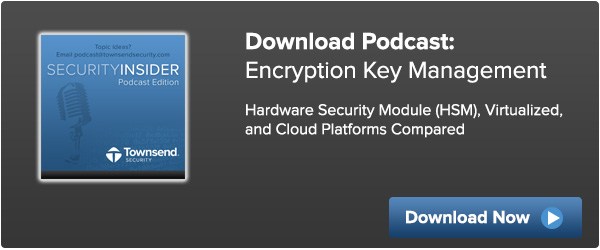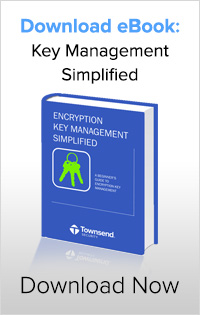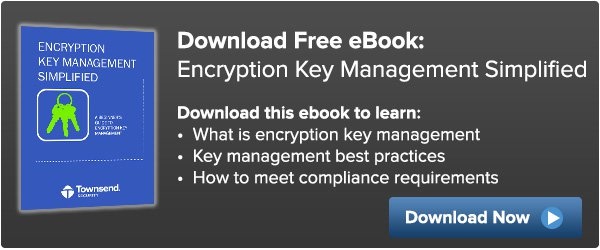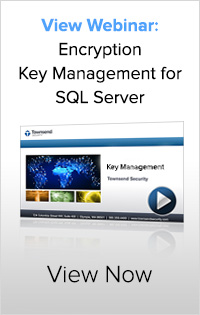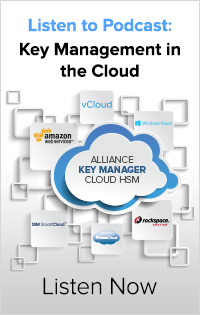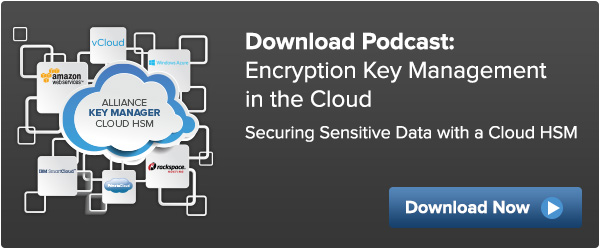Best Practices for Deploying a Key Manager in AWS
 The cloud has transformed the way most industries manage their data. With services that offer cost-effective, scalable, “pay-as-you-go” options, it is increasingly rare to find a company that doesn’t want to migrate business-critical applications from an in-house data center to the cloud. Companies will make different decisions based on industry risk assessment, their own tolerance for risk, and compliance regulations, however, some Enterprises have been holding back on their migration to the cloud until comfortable that they can properly protect their most vital information. Data security was a concern when we had a fully controlled hardware environment, and now that we are moving to shared, multi-tenant virtual environments it has become even more critical.
The cloud has transformed the way most industries manage their data. With services that offer cost-effective, scalable, “pay-as-you-go” options, it is increasingly rare to find a company that doesn’t want to migrate business-critical applications from an in-house data center to the cloud. Companies will make different decisions based on industry risk assessment, their own tolerance for risk, and compliance regulations, however, some Enterprises have been holding back on their migration to the cloud until comfortable that they can properly protect their most vital information. Data security was a concern when we had a fully controlled hardware environment, and now that we are moving to shared, multi-tenant virtual environments it has become even more critical.
Data encryption has had a reputation of being the hardest security measure to achieve and yet it is the best way to secure digital information that needs protection. One of the most important elements of encryption is using encryption key management best practices to keep the encryption keys safely stored away from the data they protect. An Enterprise key management solution will also provide dual control, separation of duties, and proper rotation of encryption keys to ensure that you (and only you) control, manage, and have access to your encryption keys and the data they protect.
Any cloud platform brings with it an additional set of security concerns, including the ability to implement and demonstrate regulatory compliance, as applications and services move into the cloud. Whether Enterprises bring their own applications and operating systems into the AWS cloud, or use the variety of options and rich set of services supplied by Amazon, lets take a look at ways data can be encrypted and the use of appropriate technologies to protect those vital encryption keys.
Virtual machine migration: Probably the most typical cloud deployment involves IaaS (infrastructure as a service) where the operating system, database, and everything is contained with an application. By using industry standard encryption and key management, vulnerabilities are significantly reduced and organizations are able to enforce compliance requirements.
Data storage options: Whether you are encrypting an entire database, or using column-level encryption for a more granular approach, you have options for database (data-at-rest) encryption.
Amazon Relational Database Service (RDS) While RDS does not support encryption key retrieval and on device encryption services internally, it does to make it easy for applications to encrypt data going into and out of the RDS. You can retrieve encryption keys for application-level encryption or use on-device encryption before writing to, or reading data from, the RDS.
Amazon Simple Storage Service (S3) is very popular for video, audio, and large files now with server-side customer supplied encryption and key management support. Each file can have it’s own encryption key, or you can use the same key to encrypt multiple files. With recent enhancements by Amazon, you can easily “bring your own key” and integrate a key manager to encrypt data being stored in S3 and decrypt data that is retrieved from S3 storage.
Amazon Elastic Block Storage (EBS) is available for any virtual machine running in an Amazon context to retrieve encryption keys and encrypt data in very straightforward application environment.
Choosing an Encryption Key Management Solution
Make sure your key management solution provides a rich set of SDKs and client-side libraries all of which run in cloud platforms and can be used through all of the storage services that Amazon provides. You should be able to choose to host the key manager in the AWS cloud as an Amazon Machine Instance (AMI), or in a hosted cloud HSM (which is gives you a dedicated HSM in a SOC 3 audited data center with a PCI DSS letter of attestation for compliance) or within a physical HSM under your full control within your own data center. Look for a key manager solution that runs exactly the same way in all of these environments, and ensures that you maintain ownership of your encryption keys at all times. So if you deploy in one location and then need to migrate, you can easily store your data in the appropriate locations. Also, using industry standard encryption and certified solutions for key management are critically important for meeting compliance regulations and following security best practices. Using a third party Cloud HSM gives you the assurance that your encryption keys are kept safely apart from your sensitive data. It is very important to make sure no one else has administrative access, because above all, encryption keys are the secret that must be protected within your encryption strategy.
With options for fee-based encryption key management services, as well as bring-your-own-license solutions, Townsend Security's Alliance Key Manager (AKM) for AWS allows Enterprises to properly manage their encryption keys while meeting security requirements in less time and at a lower cost. While it is not possible to perform FIPS 140-2 validation in a cloud service provider context, Alliance Key Manager uses the same FIPS 140-2 compliant key management technology available in Townsend Security's HSM and in use by over 3,000 customers worldwide. Alliance Key Manager for AWS provides full life-cycle management of encryption keys for a wide variety of applications to help organizations meet PCI DSS, HIPAA, and PII compliance at an affordable price.
To learn more about protecting your data in AWS, download this recent podcast by industry expert Patrick Townsend:

